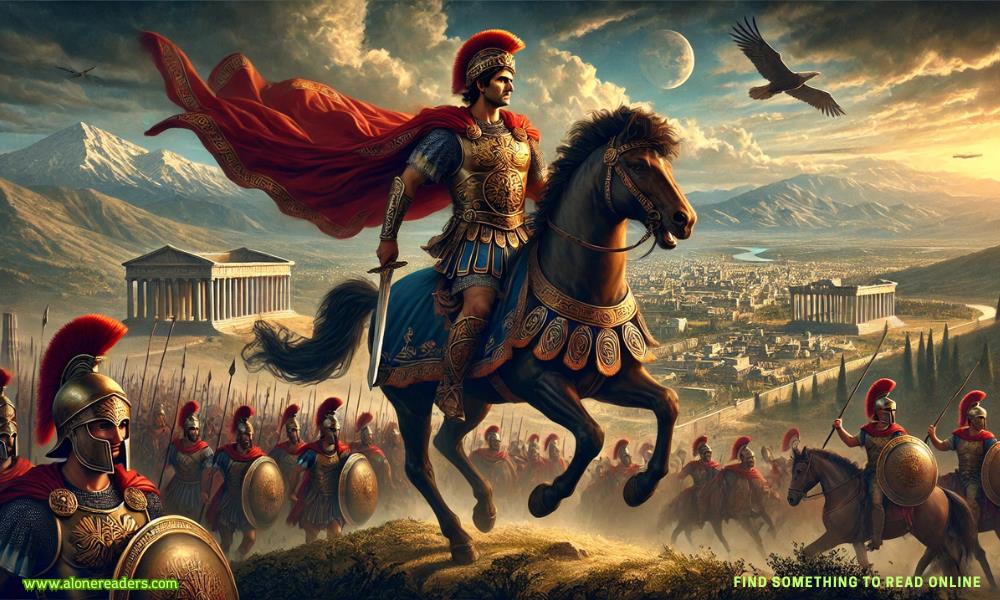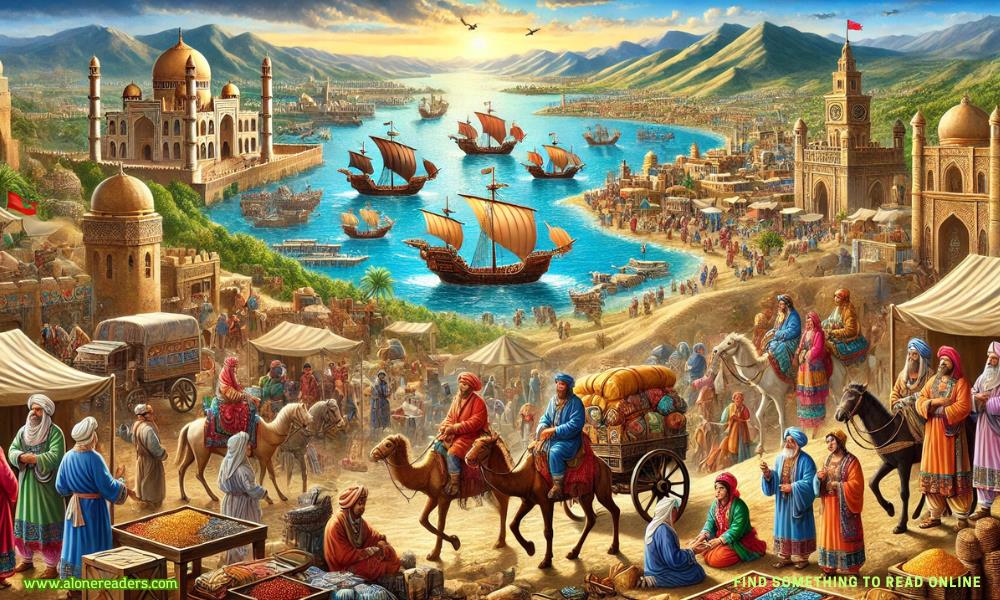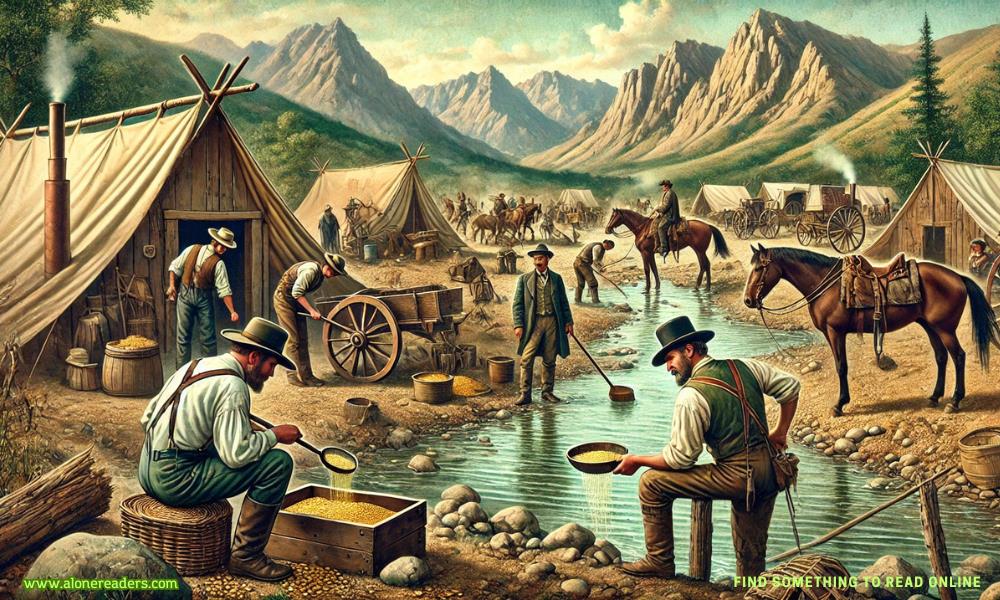Page 1 of Under the Lion Star
Prologue
Zialda
The house was chaos. My sisters’ artwork littered the rough-hewn mantle of the hearth, whose warmth was utilized more often to dry mud-sodden shoes than it was for relaxation or to offer a space for quiet contemplation. Every corner was piled with unfolded clothing that never seemed to make it to our dressers after being pulled from the line outside.
Toys were left in spaces intended for walking, and after how many of my sisters’ belongings I had inadvertently crushed, one would have assumed they’d learn to put their things where they were meant to go.
A puff of air was forced from my lungs as my mother thrust the canvas knapsack at me. It felt lighter than the last time I’d taken my siblings into the city.
“You’ll have to feed her in a couple of hours,” my mother exhaled, shoving supplies for my infant sister into the bag. “Make sure to mash up the banana. No chunks.”
“I’ve fed her before,” I replied.
“And you’ll need to stay out until evening. Just before the sunset,” her words were rushed, bleeding with the increasing panic that she was trying to manage. “But not after dark. I don’t want you girls walking about after dark.”
“This isn’t the first time I’ve taken them into Galvord,” I sighed, rolling my eyes. “I’m sixteen, not two.”
“Zialda,” she pinched the bridge of her nose and sucked in a deep breath. I knew when she used my full name, instead of ‘Alda’ as all my family did, that she was serious. When her bright green eyes opened once more, her gaze softened considerably. “I’m not trying to be patronizing. This is just a stressful day for me.”
“I get it,” I nodded, hefting the strap of the bag over my shoulder with a shrug. “I’ll keep them busy and out of your hair.”
“If this talk goes well with your father, then we’ll be set through the winter,” she gave me a soft smile while pushing back the errant hairs that had fallen over my forehead. “It means less time I have to work and more time I get to spend with my girls.”
“I know, Mom,” I combed down her lavender hair with my fingertips, righting the strands frazzled by her constant fidgeting. “You’ll ask this time?”
“Alda,” her face fell.
“Just if he’s open to meeting me, and if not, that’s fine,” the word tasted sour, but I tried my best to sound indifferent.
In truth, I had become desperate to meet my father. What was he like when he was my age? Did he have any hobbies or interests that might pique my curiosity and give me a sense of direction as I approached womanhood? An ever-growing list of questions festered in my mind with no answers. Mom evaded them at every turn, constantly pushing them down the road until, when broached again, she’d formulate more excuses.
It wasn’t that I was naive. I knew what my mom did for work. Some elves might be ashamed to have a whore as a parent, but I only ever felt proud. My mom had provided me and my five younger sisters with a happy and stable life. She balanced her needs with those of her family, leading by example that sometimes it’s okay to prioritize your mental well-being. At the end of the day, it was her body to sell. How she earned money did not reflect who she was as a person, woman, or mother.
“He’s an influential man, Alda,” my mother replied softly. “It’s not about you, but about his image. He can’t be known for having a bastard child.”
I winced. The word bastard seemed so callous. It stirred images of a mistake that both parties wished had never come to be. Something unwanted, something less valuable. Is that what I was? Simply because my father had sired a child outside the confines of his marriage? Did that warrant a label with such a negative connotation?
“Well, if you have the opportunity, maybe just mention how I’ve been studying with Aunt Stella. That I’m a hard worker and love to learn new things.”
“You don’t need external approval to know that you are an incredible young lady,” she said, setting her hands on my shoulders and applying gentle pressure. “Whether your father wants to meet you or not is because of his own issues. It has nothing to do with you.”
I swallowed harshly, letting the words drift through my mind and hoping that, for once, they’d take a permanent residence instead of being whisked away by the nagging feeling that I didn’t know what I was doing in just about every facet of my life.
“Anyone would be proud to call you ‘daughter.’” If she noticed my eyes misting over, she didn’t say anything.
Why I even cared for his opinion confused me. He was the one who impregnated a prostitute while married to another woman. The shame shouldn’t come from my existence but rather from his actions. Yet the voice in my head continued to seek even a morsel of approval from him.
I tried to reframe my thoughts, focusing on my siblings instead of myself. I was proud of them—even Zara, who had yet to master the art of walking. When I saw them, I saw girls who annoyed the piss out of me at every turn, but I also saw the strong women they were growing into. Why couldn’t I apply that to myself?
We were all bastards. None of my sisters shared a father, except the twins, for obvious reasons. None of their fathers had attempted to be a part of their lives, and based on the conversations I had overheard between Aunt Stella and my grandmother, all of them had highborn fathers with reputations to uphold. The thoughts I had of myself would send my fists flying if they were ever uttered at one of my sisters.
“Now get out of here,” my mother laughed as my siblings shouted at me from our front yard. “Enjoy some treats at a bakery, and if you want to get on my good side, bring me back something sweet as well.”
“Yeah, yeah,” I rolled my eyes before stepping out onto the porch.
The small staircase had once been painted white, but the remaining chips were scattered at the edges, worn away by the stomping of feet. The clovers had been stripped of their blooms because the twins made approximately four thousand flower crowns daily. Beyond was an endless expanse of wheat fields, which would often ripple like ocean waves in a strong breeze.
This was our home. It was safety, love, and arguments over clothing or whose turn it was to fetch the water. It was small, some might say meager, but it was ours.
- Three Corporate Kings and a Hands-Off Bride by Chloe Kent
- Better than Revenge by Jisa Dean
- Mountain Rancher by Stella Banks
- The Contract by Rebekah Sinclair
- No, You Hang Up by A.J. Merlin
- The Triple Play by Mia Mara
- His Dark Purpose by Felicity Brandon
- Echo and the Homicidal Sea Panda by Kelex
- His Forsaken Alpha by Kelex
- Pack Apollo by Brandy Slaven
- Pack Giroux by Brandy Slaven
- His Kingdom by Kylie Kent
- Heartbeats & Highways by Emma Slate
- Masked Mafia's Runaway Bride 2 by Alexis Lee
- Just Say Yes by Lena Hendrix
- This I Promise by Elyse Kelly







